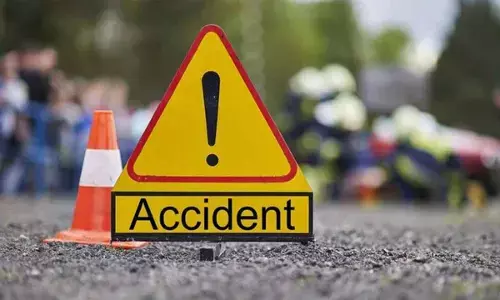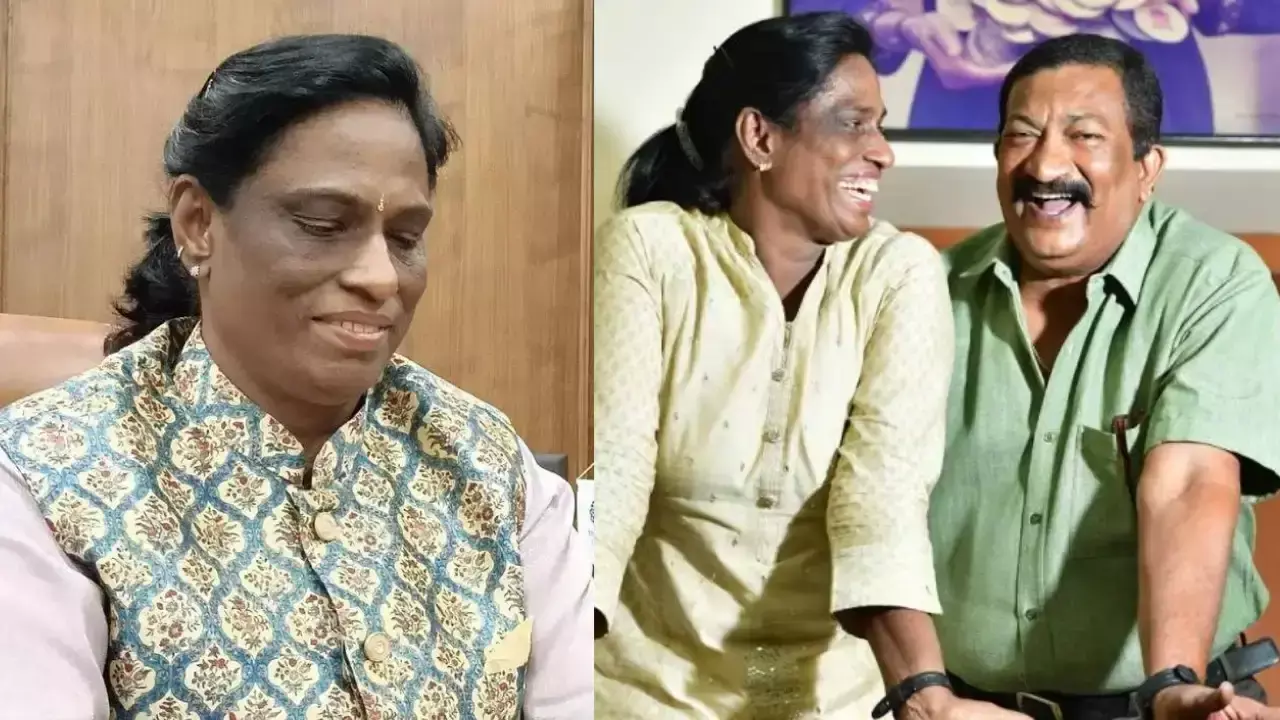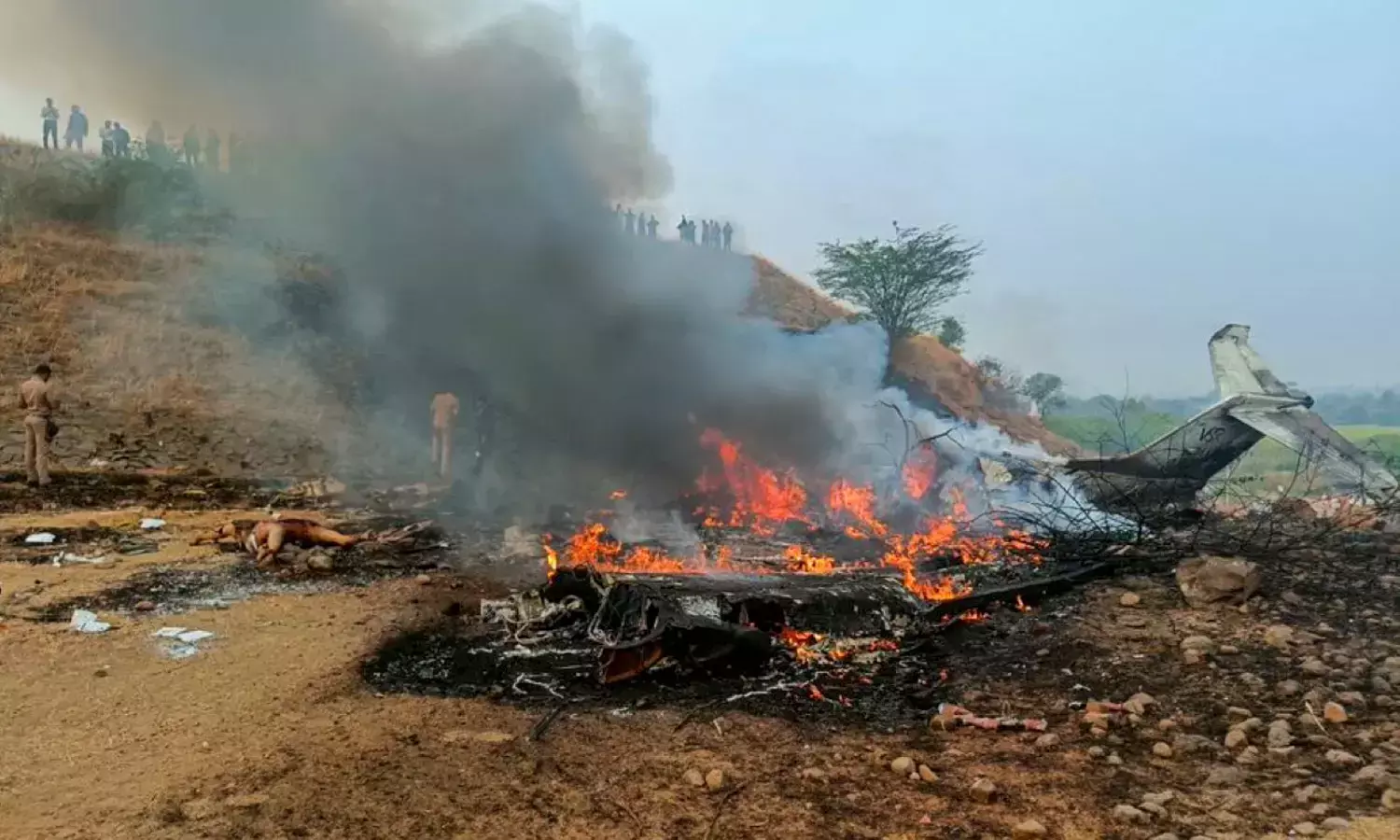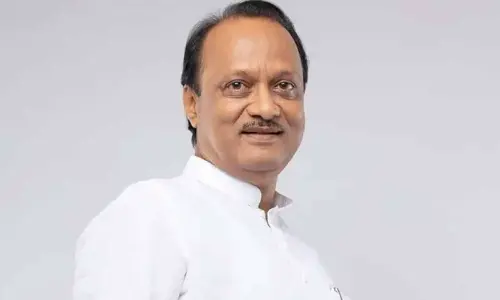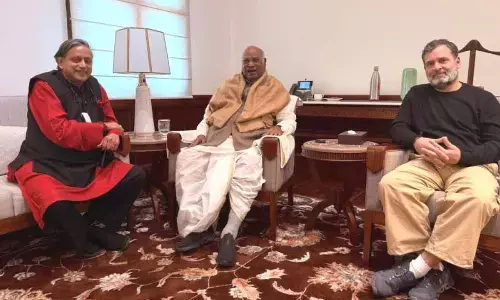Simply demonising YSRCP supremo won’t help
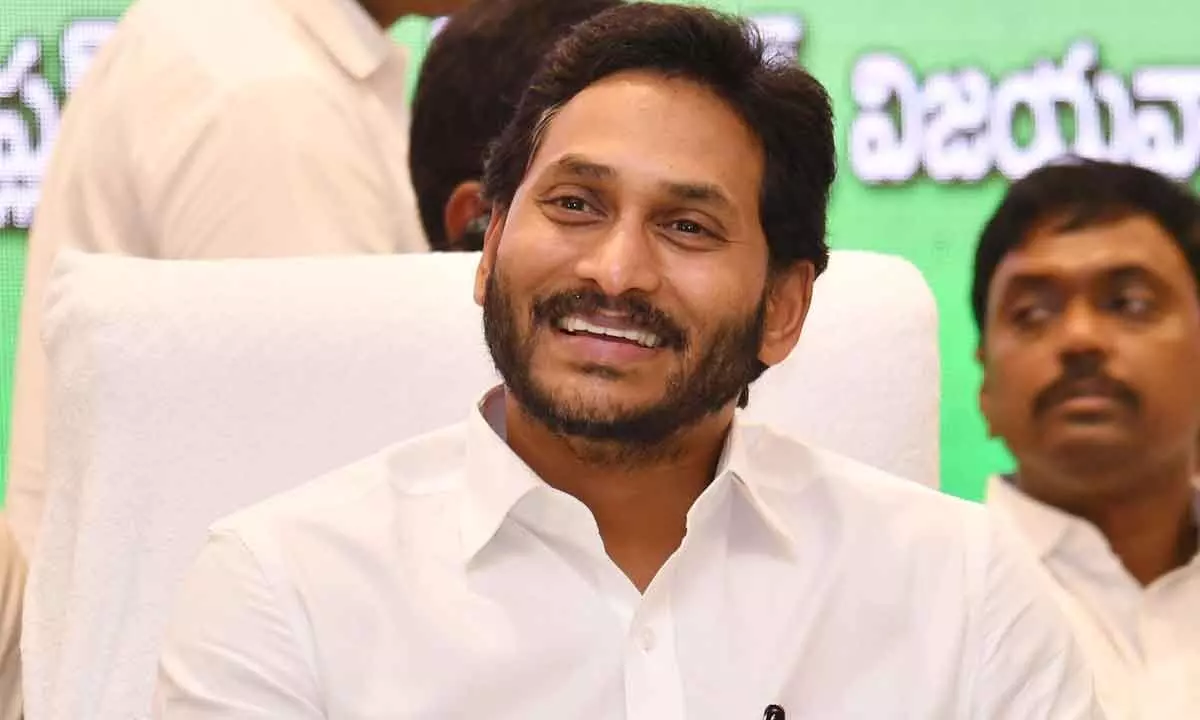
It is time the Opposition understands the futility of personal attack. What is to be attacked is, the governance, not the ruler. That is important to strengthen the campaign. About 80-90 per cent of the attack against Jagan is all about his persona. Increasing violence against women, dalits and minorities as well the plight of employees has a mere referential value. Corruption of MLAs and other local ruling party leaders is key to the upcoming election. e process of demonising Jagan will only dilute their campaign
So, it is 'Mahanadu' time for the once formidable Telugu Desam Party. This year's event is somewhat special. This year's event marks the birth centenary celebrations of its founder, NTR, too. After the bifurcation of the erstwhile Andhra Pradesh in 2014, the party scaled down its operations in Telangana and rightly concentrated on the residual Andhra Pradesh to come to power in 2014 general elections.
Telugu Desam supremo N Chandrababu Naidu's leadership qualities assured his party power for five years and the leader was fully geared up for a second term, too, in 2019. But, riding a wave of sympathy and popularity and on the strength of a quirky 'one chance' slogan, Y S Jagan Mohan Reddy could unseat Naidu stunningly with a huge majority.
Telugu Desam Party has never been the same since. As soon as he came to power, Jagan started blasting on all his welfare cylinders to counter the TDP criticism effectively pushing the latter into a corner. Halfway through his first term, Jagan began slipping a bit, giving the TDP an opportunity to recoup its energies. Apart from some stray instances like those of Dr Sudhakar's ouster from the job, his arrest and later his death, the overenthusiasm of the law and order agencies in targeting the TDP leadership also gave the unexpected breathing space to the TDP.
The capital issue and the legal battles of Jagan and his confrontation with the judiciary did not earn him much encomiums. The fallout has only emboldened several sections to knock the doors of justice regularly, but it was not channelised properly.
The anti-Jagan space has always been there politically, but the fevicol movement for the Jana Sena and the TDP did not happen in time due to the ego of one and the caution on part of the other. The BJP leadership's indifference (a compulsion rather) only queered the pitch a bit for the two.
How far has the situation bloomed in favour of the anti-Jagan grouping in the State? Is it really empowered now to take on Jagan? State finances have been a cause of concern among the middle class and the elite, but will this consolidate in favour of the Opposition? Could it take on the 'welfare plank' of the YSRCP effectively? Or is it all just brouhaha?
The problem for the Opposition in AP is multifold. Consolidation of the anti-Jagan vote itself is not complete. The depth of YSRCP's connection to the 'welfare sections' of the state is not assessed fully. The Opposition's view seems to be skewed due to its interpolation with the anti-Jagan media stand. Caste equations do not always yield the required results in the face of a 'broadbased' welfare and DBT (direct benefit transfer) approach of the ruling party.
Allegations of corruption may not matter much as Jagan has come to power facing a very high-decibel campaign in this regard. Voters would be more affected by the corruption and malpractices of their MLAs and their henchmen.
In a world of declining political party influence, protest movements and organised labour have increasingly served as vehicles to express grievances and channel political action. The Left's role is crucial here. The linear political preferences of non-Left parties do not match the ingenious methods of the Left in taking on the ruling classes. Right interplay of the Opposition with the Left is missing in AP.
As for the movements, they have died their slow and natural deaths due to the influence of electoral politics in the state as well as the country and hence, not much could be done with them. Yet another weakness of the Opposition is in jumping into every protest and civil society movement fielding the so-called well-known Jagan critics that invariably leads to a caste connotation benefiting the latter.
The role of the government in increasing the supply of voters to the ruling party through subsidies and DBTs is not to be underestimated. The Opposition should also be in a position to identify the 'trigger points' properly to rally people around but it does not seem to have done so. The role of non-voters in solidifying public opinion against the government is not at all exploited.
It is also time the Opposition understands the futility of personal attack. What is to be attacked is, the governance, not the ruler. That is important to strengthen the campaign. About 80-90 per cent of the attack against Jagan is all about his persona. Increasing violence against women, dalits and minorities as well the plight of employees has a mere referential value. Corruption of MLAs and other local ruling party leaders is key to the upcoming election. The process of demonising Jagan will only dilute their campaign.
Political parties should always rally behind protesting groups and attempt mass mobilization rather than attempting to take over the issue. The TDP and Jana Sena have spoken about liquor, both legit and illicit, about narcotics and about issues like sand mining etc which could have become potent weapons against the government by now. However, even the issue of livelihoods vis a vis development and the situation of finances got embroiled in a political slugfest the moment a comparison was drawn with the previous regime.
The Opposition talked about farm distress and farmers' plight. The Government always had its 'relief measures' response to counter it. Had the distress faced by the farmers due to DBTs to the farm labour been worked upon vigorously it could have given a greater leverage to the TDP and the Jana Sena. Why did the farm labour shortage issue not become a major one in AP? Did the Opposition study the impact of welfare measures on the migration of rural workforce to the urban centres at all?
The campaign for housing has also been reduced to an elitist 'selfie challenge' in the State of late disallowing a proper debate. The housing colonies constructed for the poor by the previous government are gathering dust but no effective campaign has been taken up.
Even the Amaravati farmers movement has been diluted by the ruling party into a "TDP sponsored campaign" despite the long struggle of the people of the region due to 'politicisation'. The farmers are the losers here. The TDP should have either fully owned it up or gotten out of it. It did neither, leaving the issue and the farmers in a lurch now.
Agreed that there are limitations to some movements because protestors are estranged from a system that is unresponsive to their views and are hostile to political parties. This is what makes them profess to be anti-political. India Against Corruption itself, while claiming to be above politics and division, was organized by and initially attracted middle class supporters.
The common man in AP did not have the benefit of any props to fight the government decisions and he did not even question the flourishing liquor policy despite the Government's claim that it was to be phased out. Why did the Opposition not tap this opportunity effectively? Hardly a year is left for those planning to take on Jagan's rule. The Opposition could introspect and come out with an effective campaign or wait endlessly for 'judicial intervention' to come to its rescue as is the case.












